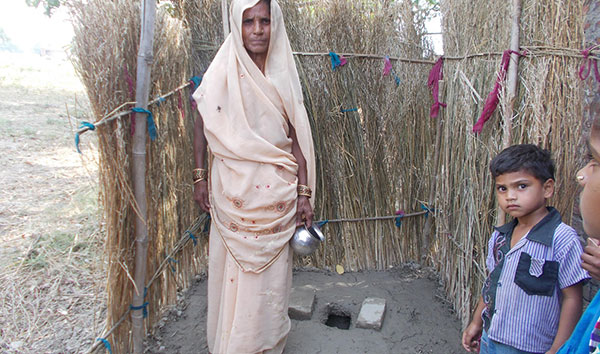
According to Census 2011, 636 million Indians (more than half the country's population) lack toilets resulting in disease, childhood malnutrition, loss of economic output and violence against women. Some 300 million women and girls are forced to defecate outside, exposed not only to the risks of disease and bacterial infection, but also harassment and assault by men. More than 200,000 children under the age of five die each year from diarrhoea and almost half of under-fives have stunted growth as a result of exposure to faecally transmitted infections.
Uttar Pradesh has been performing exceptionally poorly in all sanitation programmes run by the Indian government since 1999. And, as expected, the women and children in UP suffer the brunt of non-availability of sanitation infrastructure. They lose privacy and face shame having to defecate in public, or - after painfully holding their bladder and bowels all day - risk attack by waiting until night falls.

RGMVP's Sanitation and Gender initiative initiated a pilot programme looking to address the cross-section between gender inequality and sanitation, where the negative effects of open defecation, poor hygiene, and insufficient menstruation education predominately impact women and children. Educational sessions are conducted on toilet upkeep, menstrual hygiene management, safe drinking water practices, and hand washing. This project also works to educate the community on their government rights and entitlements, which grant them access to free vaccinations and subsidised sanitary pads, iron tablets, supplementary nutrition, and toilet construction.